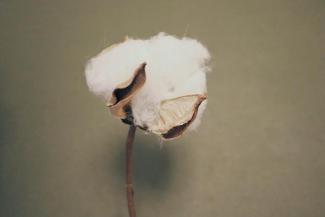The fashion industry is the second most water-intensive industry in the world [1], consuming around 79 billion cubic metres of water per year [2]. That statistic is startling considering 2.7 billion people currently experience water scarcity [3]. This all means that a massive amount of water is used to feed the fast fashion industry, all while billions of people lack an adequate supply of water to drink. To put that in perspective, it takes 2,700 liters of water to make the average cotton t-shirt and that’s enough drinking water for one person for 900 days [4].
Blog
2020
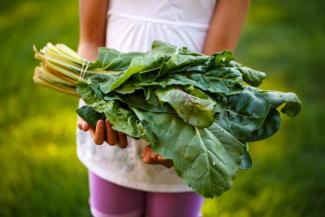
What is sustainable farming?
Sustainable farming is the practice of incorporating initiatives into farming and agricultural work that allow farms to maintain their productivity and usefulness to society indefinitely. Throughout the process of sustainable farming, it is important not to compromise production output. It is also important to not compromise the ability of future generations to get what they need out of sustainable farming.
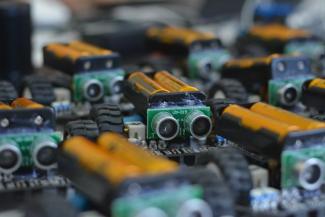
Hello everyone, thank you for taking the time to come read this article and stay engaged with the Sustainable Campus family! Let's get right into it!
When we talk about battery waste and how we can address it, we first have to start off by establishing what we can consider battery waste i.e. what happens when we ignore recycling pathways? When batteries are not disposed of properly or recycled, they can expose humans to:
•Lead: causes brain damage, hearing loss, affect growth in children
•Sulfuric Acid: highly corrosive, can cause blindness through eye contact
Making a shift to a more sustainable lifestyle doesn’t have to be difficult. With Earth Day around the corner, now is a great time to start looking for easy ways to build a more sustainable life. Here are six easy swaps and tips to help make your life a little greener and even save you money at the grocery store!
Fish is constantly advertised as a healthy source of animal protein, one that is much cleaner than other meats. On top of that, it has also been exposed that animal agriculture produces tons of pollution, requires a significant amount of land, is the biggest consumer of freshwater, and is the largest cause for cutting down rainforests. With what we’ve heard via advertising and what we know about traditional animal agriculture, it’s safe to assume that eating seafood is the most sustainable choice for both our bodies and the planet, right? In reality, it’s not that simple.
The Foundations of IMC Living Lab course challenged students to design an advertising campaign for CyclingSavvy
How could Sustainable Campus and Transportation and Parking Services (TAPS) encourage the Florida State community to think about bicycle safety? This was the question posed to a team of 16 graduate students in the ADV 5007 Foundations of IMC course at the beginning of the Fall 2019 semester as a part of the new Living Lab program.
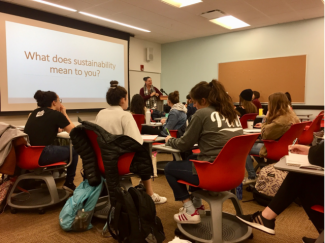
The Sustainable Design course challenged students to redesign spaces across the FSU campus as sustainably as possible.
In collaboration with Facilities Design & Construction, undergraduate students in the Spring 2020 IND 3627 Sustainable Design course applied principles and products of sustainable design to reimagine an existing space on campus.
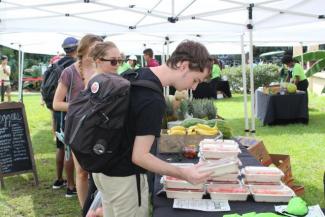
Sodexo tasked the Foundations of IMC Living Lab course to create communications strategies focused on reducing waste.
In Spring 2019, Seminole Dining provider Sodexo challenged graduate students in ADV 5007 Foundations of IMC to raise awareness for two sustainability areas of focus on campus: The reduction of straw use on campus and the recycling of plastic bags using TREX containers.
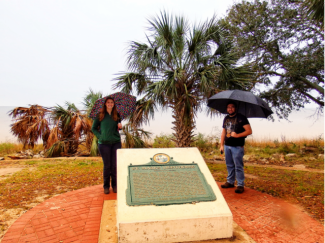
Students in the Coastal Planning course utilized their classroom knowledge to propose updates to St. Marks visitor services.
Urban Planning students in the Spring 2020 URP 5422 Coastal Planning course collaborated with the St. Marks Wildlife Refuge to propose updates to the visitor services component of the refuge’s comprehensive plan.
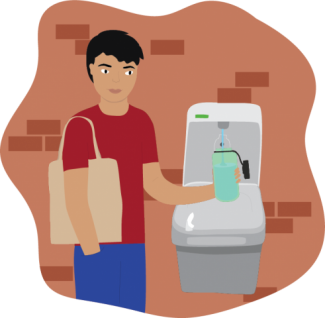
Last summer, we posted a photo of a hydration station located at the FSU College of Law on our FSU Sustainable Campus Facebook page. It would have just been a normal day, a normal Facebook post, but we got a comment that sent us on a journey to FSU’s law school where a certain Torts professor teaches.

